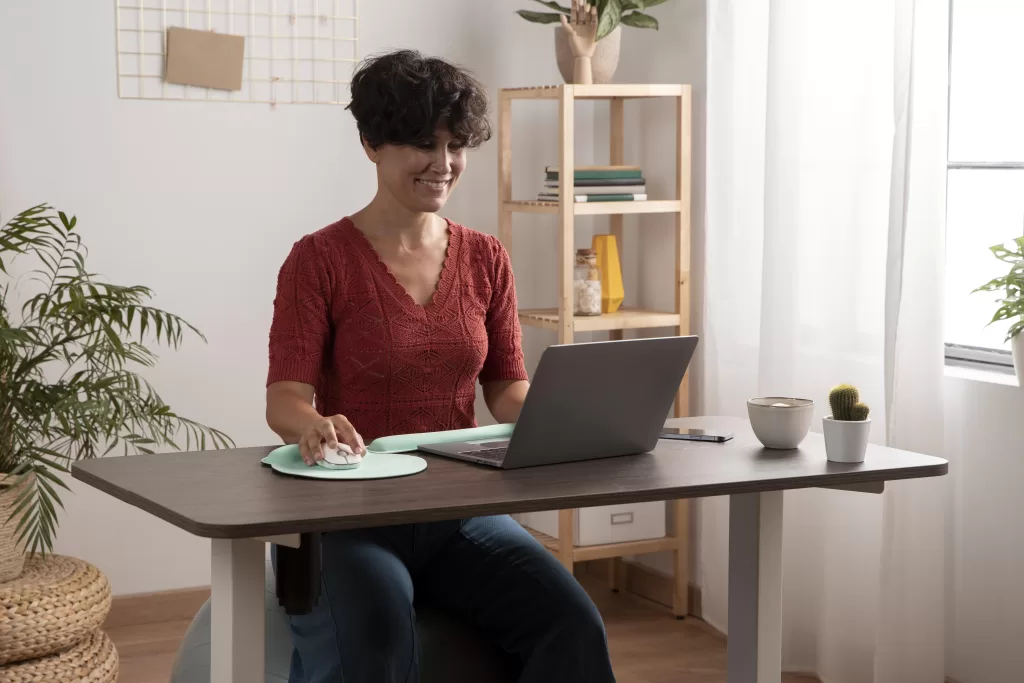The makeup of the workforce has changed significantly in recent years, especially for women who are choosing freelance work over typical 9–5 occupations. This movement is a significant reaction to the changing requirements of contemporary women, which include wanting flexibility and autonomy as well as addressing issues related to mental and physical health, childrearing, and job change. This essay delves into the reasons behind women’s embrace of freelancing as a way to address these varied facets of their lives.
Empowering Mental and Physical Health
Women are flocking to freelance work in large part because they want to give their physical and mental health top priority. Traditional employment frequently entails strict schedules and restrictive structures, which can cause stress, burnout, and general dissatisfaction. People can break free from these limitations by choosing their own work environment, pace, and scheduling when they freelance.
Women who work from home are better able to control their stress levels, schedule time for self-care activities, and maintain a more positive work-life balance. Freelancing allows women to customise their work schedules to support their overall well-being, whether that means working from a more comfortable location, engaging in hobbies, or taking pauses for exercise.

Catering to Child Raising Responsibilities
Many women choose to work for themselves because they find it difficult to balance their career goals with the responsibilities of raising children. It can be quite difficult to juggle a career and family obligations within the constraints of a typical 9–5 work. Because it gives you the freedom to design schedules that fit family obligations, childcare arrangements, and school pickups, freelancing is a practical alternative.
Freelancing gives women the flexibility to work from anywhere and change their schedules as needed, allowing them to pursue their career goals without compromising their involvement in their children’s lives. This degree of independence strengthens their relationships with their families and gives them a sense of empowerment and fulfilment in their personal and professional lives.
Flexibility and Freedom
One of the main reasons why freelancing appeals to women is the flexibility and independence it offers. Freelancing offers a more flexible approach to work than typical employment organisations, which can impose rigid office hours and hierarchical norms.
Women have the power to choose their own working hours, negotiate pricing, and select projects based on their interests and skill set. Their ability to make their own decisions, pursue new possibilities, and develop a profession that fits their values and objectives is made possible by their autonomy.

Pros: Higher Earning and Selective Projects
In addition to the inherent advantages of independence and freedom, freelancing has observable benefits in terms of income potential and project choice. Because they can determine their own fees based on market demand, experience, and the value they provide to clients, freelancers have the potential to make more money than their peers in traditional professions.
In addition, independent contractors possess the liberty to select assignments that correspond with their passions and competencies, thereby promoting increased job satisfaction and involvement. Women can use this professional portfolio curation tool to highlight their skills, follow their hobbies, and establish a niche for themselves in their chosen fields.
Cons: Limitations of Work Stability and Building an Online Presence
Although freelancing has many benefits, there are drawbacks as well. Building a reliable internet presence and surviving the cutthroat freelancing industry are two of the biggest challenges women encounter.
Dedication, networking, and persistent self-promotion are necessary for establishing a strong reputation, gaining clients, and sustaining a consistent flow of work. Freelancers also have to deal with the inherent unpredictability of the gig economy, which can affect their income and way of life due to changes in demand, delays in projects, and payment problems.
The increasing number of women choosing to work as freelancers is indicative of a fundamental change in the way people view life and work in the twenty-first century. Women are taking back control of their careers, putting their health and well-being first, and blurring the lines between work and personal life by embracing freelancing.
While there are many advantages to freelancing, there are drawbacks as well, including the need for resilience, flexibility, and strategic preparation. in a recognition of the advantages and disadvantages that come with freelancing, women can move confidently in this changing environment, committed to their own holistic development and fulfilment.


